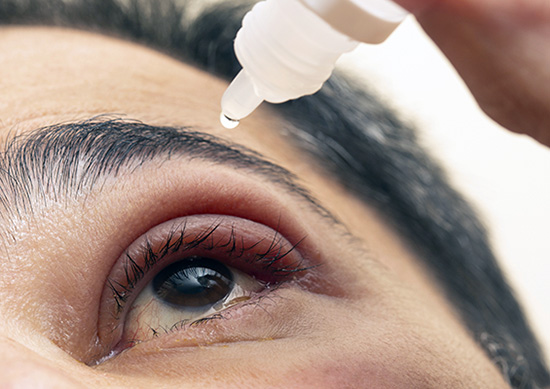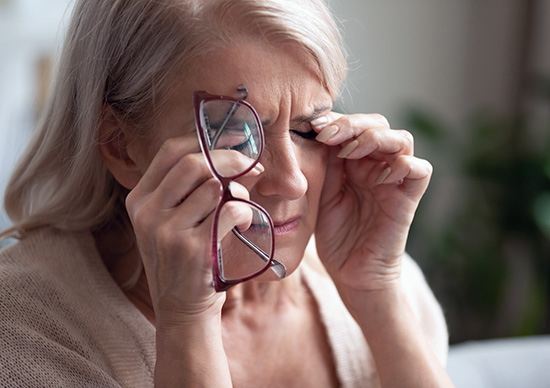Dry Eyes
What is Dry Eye Syndrome?
Our eyes need tears to stay healthy and comfortable. If your eyes do not produce enough tears, it is called dry eye. Dry eye is also when your eyes do not make the right type of tears or tear film. People tend to make fewer tears as they get older due to hormonal changes. Both men and women can get dry eye. However, it is more common in women—especially those who have gone through menopause.

What Causes Dry Eye?
Here are some other causes of dry eye.
- Certain diseases, such as rheumatoid arthritis, Sjögren’s syndrome, thyroid disease, and lupus
- Entropion (when eyelids turn in); ectropion (eyelids turn outward)
- Being in smoke, wind or a dry climate
- Looking at a computer screen for a long time and other activities that reduce blinking
- Using contact lenses for a long time
- Having refractive eye surgery
- Taking certain medicines, such as: Diuretics (water pills), Beta-blockers for high blood pressure, Allergy and cold medicines, Sleeping pills, Anxiety/antidepressant medicines, Heartburn medicines
Tell your ophthalmologist about all the prescription and non-prescription medicines you take.

Symptoms of Dry Eye
- You feel like your eyes are stinging and burning.
- Blurred vision, especially when reading
- There is a scratchy or gritty feeling like something is in your eye.
- There are strings of mucus in or around your eyes.
- Your eyes are red or irritated. This is especially true when you are in the wind or near cigarette smoke.
- It is painful to wear contact lenses.
- You have lots of tears in your eyes.
Diagnosis and Treatment
Your ophthalmologist will begin with an eye exam. He or she will look at your eyelids and the surface of the eye. They will also check how you blink.
There are many different tests that help diagnose dry eyes. Your ophthalmologist may do a test that measures the quality or the thickness of your tears. He or she may also measure how quickly you produce tears.